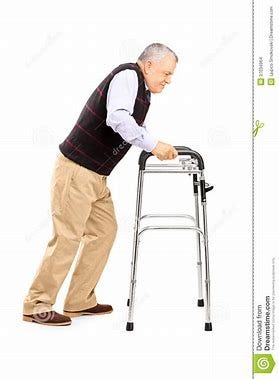Allen and I are eating lunch at a diner before his therapy appointment. I am thinking how nice it is that after several years of avoiding public places, Allen is now comfortable eating out. I look over at him and follow his gaze to the table next to ours.
An elderly woman is at the table, talking softly to her husband who is having a difficult time eating his lunch. She takes a napkin and reaches across the table, dabbing at his chin. I cast a smile at her: I recognize a fellow spousal caregiver. The dark circles under her eyes, the sag of her shoulders tell me the story.
“Is your burger good?” I ask Allen and he nods and continues eating, but he’s keeping his eye on the neighboring table.

Eventually, the man and the woman finish their lunches, and she gets up and moves over to his side of the table. “Time to go,” she says lightly and touches his arm. He turns towards her, but makes no move to stand. She tries again, moving his hand to the walker standing to the side. She takes a deep breath; I know from experience that she is trying to be patient, but it is wearing thin.
“Ma’am,” says my son. “I could help you if you like. I’m strong.”
The woman looks over at us, taking in Allen. His hair is combed today, but he hasn’t shaved and he’s wearing the T-shirt with the rip I’ve tried to get him to throw out. “That’s alright,” she says. “We can manage.”
“Alright,” Allen says pleasantly. “Just let me know if you need help.”
The woman nods and goes back to cajoling her husband. He’s not budging an inch as she attempts once more to get him to rise up. Finally, he puts his hand on the walker, struggles up for a moment, then sinks back into his seat.
The woman sighs deeply. “If you could help,” she says to Allen, “I would appreciate it.”
“No problem,” says my son. He rises to his full 6 foot 6 inches and places himself in front of the older man, holding out his right arm and steadying the walker with his left hand. The man grabs onto Allen’s arm and Allen pivots him to the walker, making sure the fellow is steady before letting go.
The woman gathers her purse and coat. “Thank you,” she says. “You made it look easy.”
My son shrugs. “No problem,” he says. “I used to do it all the time for my dad.”
The woman smiles; I think she has heard the use of the past tense. “You must have been a good son to him,” she says softly.
Allen shrugs again. “It was just Dad.”
Allen stands by them as the couple head to the door, then returns to our table to finish his lunch.
How extraordinary, I think. Allen was only ten years old when his father’s battles with mental and physical issues became part of our lives. He’s only ever known a sick father.
But he’s accepted him for who he was. Dad was just, well, Dad. I realize that my other two children, Dennis and Bonnie, have expressed similar ideas about their father. He was who he was. Despite the years and the surgeries and the hospitalizations, the missed school plays and graduations and holidays spent in hospitals, Ron was still Dad to them.
Just Dad. As I pay the bill and we exit the restaurant, I think how wonderful it would be if everyone could be as accepting of differences as my three children. If people would see Allen for his kind heart, not his autistic brain. If we would look, as God does, at the inner person.
And I think of the book I have written and am submitting to literary agents about Allen’s journey from grief to acceptance. There are other stories to be told.
Just Dad. My kids accepted Ron for who he was. They filled in the pieces of him we lost with their love. Their unconditional love.
For their dad.
Just Dad.







We should all look at the heart! Thanks Linda